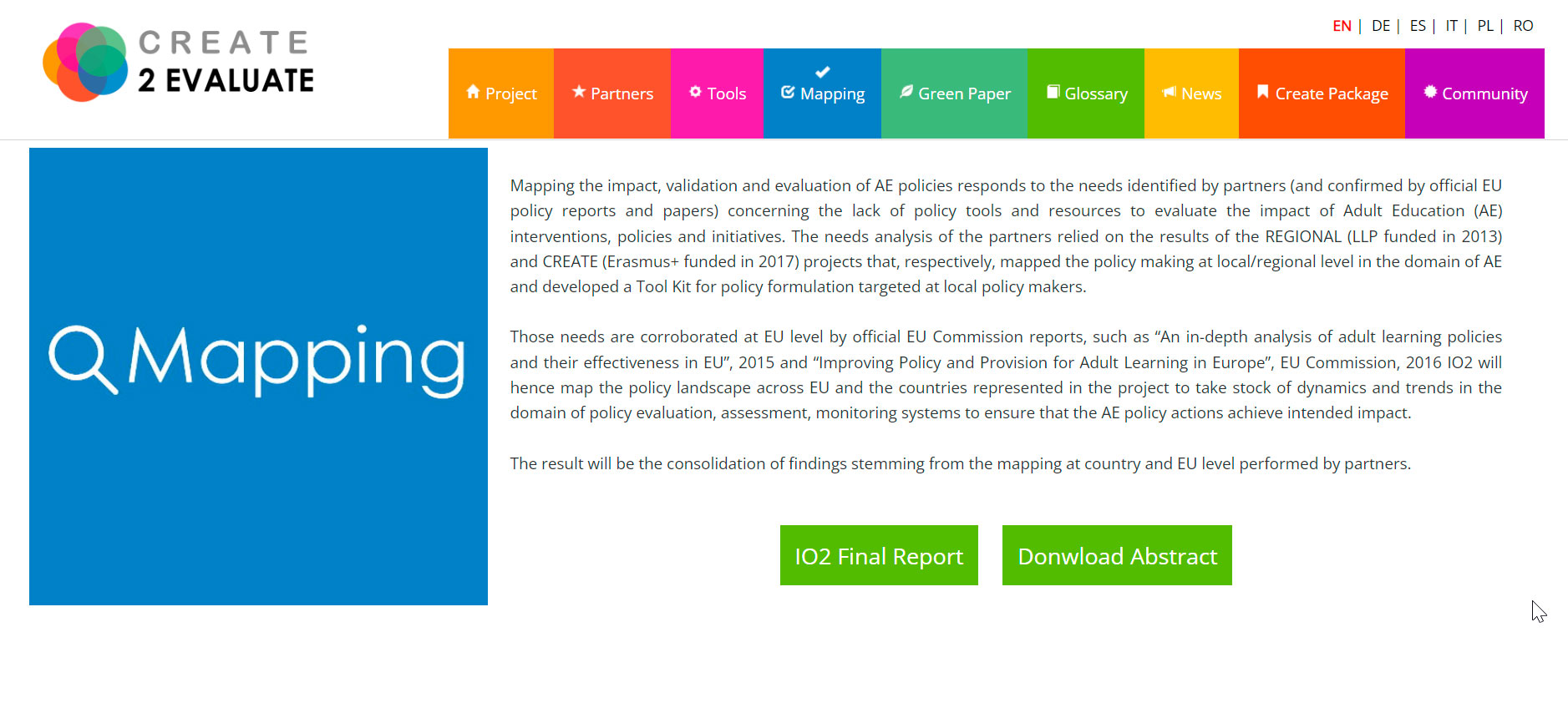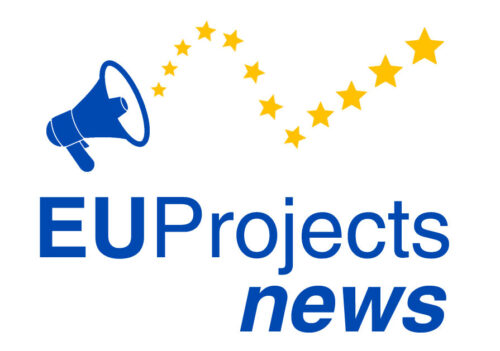
Findings from the transnational analysis conducted by CREATE2’s partners
Evaluation and Valorisation are crucial steps in creating viable strategies with long-term benefits. Yet many AE policies on the local and regional levels are not systematically evaluated. This is partly due to policy makers lacking the appropriate tools. CREATE2Evaluate addresses this gap by designing a set of useful tools and templates to help AE policy makers and agents active in the AE policy processes evaluate existing strategies, draw actionable conclusions and design better strategies in the future.
The rationale for our project CREATE2Evaluate stems from the thorough investigation of the state of the art and the needs analysis that builds a multi-pronged approach:
- robust investigation of the field through the analysis of relevant public policy documents at both national and EU levels that confirm how at present there are no effective means and tools to monitor and assess AE policies and programmes; and where those exist, they are used in a very fragmented way.
- direct experience of the partners: the proposal brings together AE providers (both formal and non-formal, both public and private), umbrella AE organisations, AE practitioners from research & academia, the third sector and the public sector (represented by local authorities tasked with policy formulation and monitoring & evaluation).
- the results of another Erasmus+ Project KA2 funded in Germany that was recently (2019) and successfully completed (final evaluation score from the National Agency of 85), the CREATE Project that developed tools for appropriate policy formulation in the domain of AE – in the 24 months of implementation and constant involvement of local policy makers, the clear need for monitoring and evaluation tools and mechanisms emerged.
During the first half of 2021, the CREATE2 Consortium finalised a very detailed cross-dimensional and transnational mapping activity aimed at identifying current methodologies, frameworks and/or models applied at local level for policy evaluation.
The final report is available for free by consulting the section of the CREATE2 Open Educational Resource Platform of the project.
Results, takeaways and findings suggested that the primary focus of current evaluation policy is quantitative outputs and student specific learning outcomes. Within any quantitative outcome evaluation partners identified a range of gaps and inconsistencies in target group statistical data, and in private and non-formal evaluation provision. Whilst significant qualitative evaluation is conducted in adult education centres according to project partners, the valuable data emerging remains inaccessible due to lack of transparent systematic overarching analysis and learner protection requirements. This makes it particularly difficult for policy makers to assess the effectiveness of their adult education policies.







